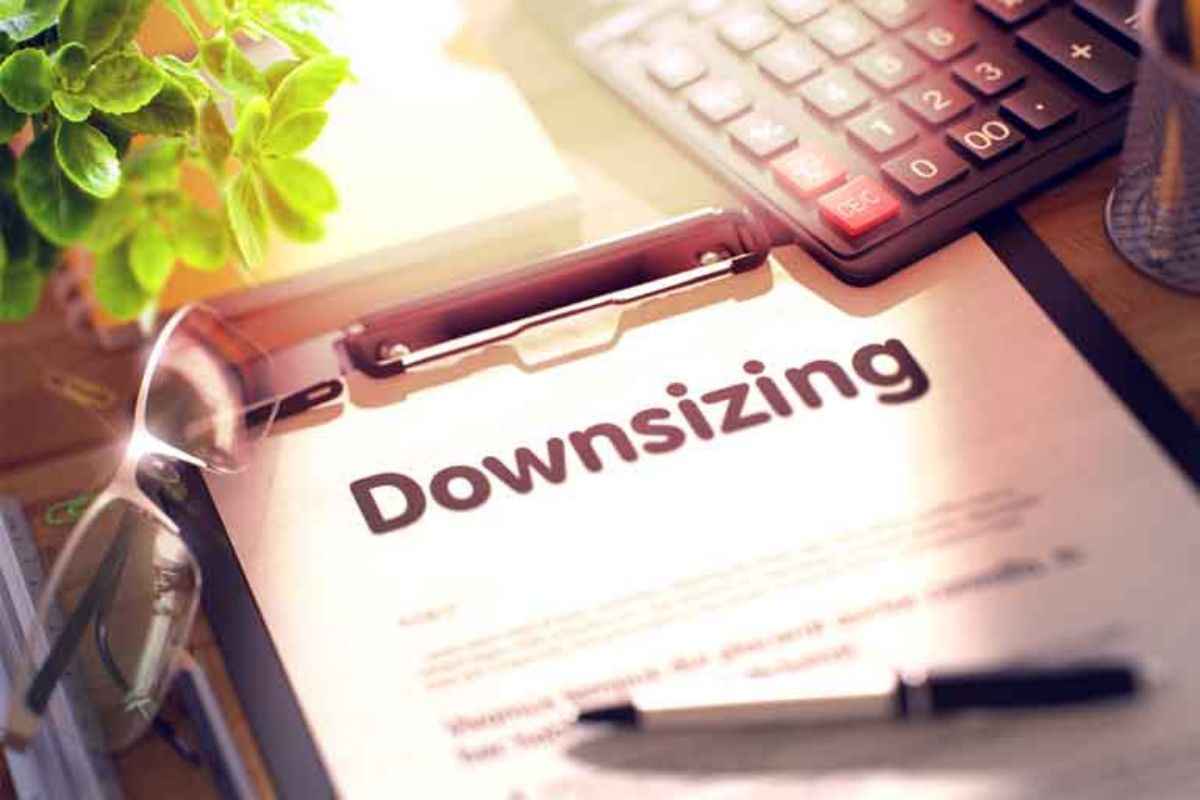Before taking the plunge into a smaller living space, it’s crucial to examine why downsizing in retirement might be a terrible idea.
Whether you are sick, unable to work, or nervous about leaving your employment, retirement is a huge milestone no matter what. If you prepare for the change more, your future life will be better.
If you are looking to maximize your savings and pensions, downsizing for retirement can be a terrible idea. It is the most powerful idea at their disposal.
If you are new to this concept, then don’t be stressed as in this article I am going to explore what downsizing is, how the process works, and various available options for downsizing in the UK.
What is downsizing?
The concept of downsizing involves making changes in one’s life in order to both increase available savings and weekly outgoings. Within the context of retirement, most people follow some of these:
- Selling their larger property and moving into a smaller, more affordable place to build their retirement ‘pot’; will lead to reducing the amount they are spending each month.
- Selling their properties that they do not further need in their life.
- Declutter their possessions.
- Selling or financing various assets to earn extra money.
- Making changes to the status of living in order to reduce the cost of living.
Advantages of downsizing in retirement in the UK:

Some of the key benefits of downsizing are:
1. Substantial monthly savings:
One of the amazing advantages of downsizing in retirement is it will have a great impact on your monthly outgoings. With a smaller amount of mortgage or rental commitment, you can reduce your monthly expenses considerably.
2. An increased retirement Pot:
A substantial downsizing sale will reduce your cost of living and can also increase your existing savings. Finding an appropriate property is stressful but the rewards are substantial if you can make the right sale.
If you can make a downsizing plan earlier then you will get more time on researching this concept and will get an appropriate price range.
3. Easier maintenance:
If you move to a smaller property then you may prefer this low-maintenance lifestyle too. Cleaning, dusting, organizing, and other household work will become easier in a smaller house.
Disadvantages of downsizing

It should be mentioned that downsizing comes with some disadvantages too. Several drawbacks are worth considering:
1. It requires a lot of planning:
If you are following a well-planned downsizing process then it can be worth the effort. But you need to climb a few steps to get the appropriate one.
You need to do enough research about downsizing and you need to put enough time into developing contingencies if your first preference for a new house falls through.
2. You have to say goodbye:
Many people live in their houses for decades, so it can be tough for them to shift to a new home. Perhaps, you get married and raise your children in the house, so it may hurt your sentiments too.
So, you need to be strong and find ways to say Goodbye to your existing house.
3. Finding an appropriate property is tough:
The fact is that there is not much availability of housing in the United Kingdom.
So, it can be tough to find a new home for your downsizing plans, which is one of the reasons to plan as early as possible.
You can draft multiple contingencies and adapt to changes according to the market.
The average downsizing age:
The average downsizing age can be hard to detect. While most people approach downsizing while they approach retirement age, some start as early as their 50s.
We will recommend you worry less regarding the specific age and you should focus on your circumstances.
According to some experts, your financial condition and life goals will determine your downsizing age, not your age.
Alternatives to Downsizing
Renting vs. Owning
Retirees often default to the idea of downsizing by purchasing a smaller property, but renting can be a viable alternative.
Renting provides flexibility, allowing retirees to test different locations without the commitment of homeownership.
It eliminates the financial burden of property maintenance and may offer a more carefree lifestyle.
Monetizing Existing Assets
Rather than selling their primary residence, retirees can explore alternative ways to monetize their existing assets.
Renting out a portion of their property, participating in home-sharing programs, or even leveraging the gig economy by offering unique experiences through platforms like Airbnb can generate income without the upheaval of moving.
Long-Term Considerations
Health and Accessibility
As retirees age, their health and mobility may become increasingly significant factors.
Downsizing might inadvertently result in a move to a location where healthcare services are not as accessible, or the new living space may not be equipped to accommodate potential future health challenges.
Considering these long-term factors is crucial in making a decision that aligns with evolving needs.
Community and Social Connections
Retirement is not just about financial considerations; it is also about maintaining a fulfilling and socially connected life.
Downsizing may lead to a change in community and social circles, potentially impacting mental well-being.
Retirees should carefully evaluate the impact of such a move on their overall quality of life.
How to downsize-the fundamental steps:
The downsizing concept involves the following steps.
Step 1: Plan:
First, you need to stock your financial situation. You can contact a firm that will understand your assets, existing savings, and outgoings and use this information to plan for the future. You can also consult with your financial advisor and discuss your goals with him.
This will put you in the clear landscape of the road ahead.
Step 2: organize:
As you have a clear picture of where you would like to go, it is time to execute the plan. You can take one or two days a week to declutter your house gradually. Organize the items that you want to keep forever with you. And what can you afford to lose?
At the end of this step, you will have the things that you are taking with you.
Step 3: Sell:
At this point, you have to undergo the selling procedure of your existing house and move to your new home. If you are moving to a retirement house then your housing company may help you with this process.
FAQ-
Can I save more through budgeting?
Ans: Yes, of course. If you prepare a budget, you will have an idea about the overall expenses you are going to bear. Therefore, you will have greater chances to save.
At what age do most seniors downsize?
Ans: As adults enter their 50s and 60s, most of the seniors are ready to downsize. That sometimes means reducing the maintenance cost and their cost of living. They find it easier to stay and maintain a smaller home rather than stair climbing to a minimum.
Why do old people downsize?
Ans: Downsizing from a larger home to a smaller one is a fact of life for most older adults. The reason involves finances, retirement pot, health issues, and a desire to simplify their living standards.
What are the benefits of downsizing?
Ans: By downsizing, you will have smaller responsibilities and a smaller workload. Some other benefits of downsizing are:
- An opportunity to move into a new apartment that will be easier to manage.
- An option to shift to a most preferable countryside location; perhaps nearer to your family and friends.
- An effective way to increase your revenue is by selling your home and moving to a less expensive property.
Conclusion:
Many retired homeowners in the UK can see themselves as asset-rich but cash-poor. They possess the property but live on a little income such as a pension.
Downsizing to a smaller home can be beneficial to raise your money. This money you can use to supplement your pension, pay off a mortgage or a loan, own a new car, or trip to your desired city.








